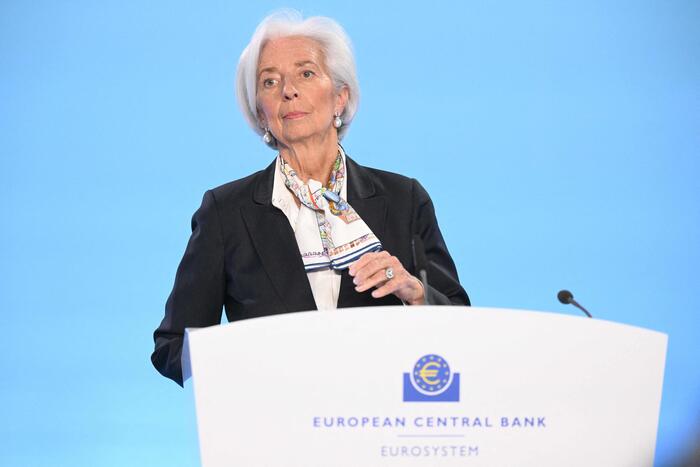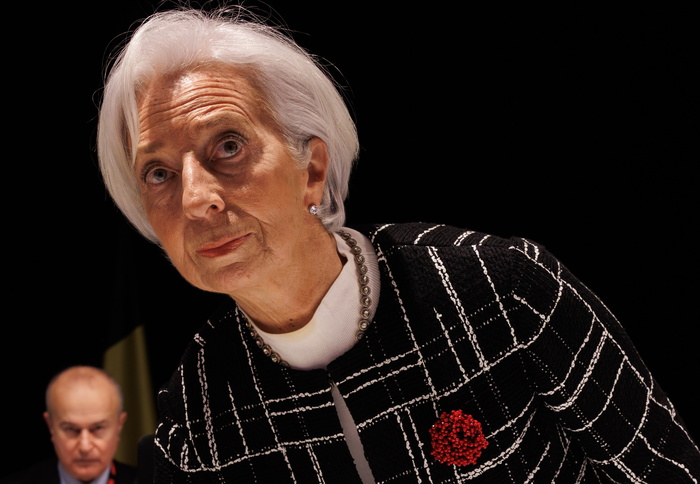The European Central Bank (ECB) is beginning to reach the end of the rate hike cycle. "Now, we are approaching our cruising altitude," said the president of the institution, Christine Lagarde, in a speech in Hannover on Thursday that highlights the difficult balances that are beginning to occur within the Governing Council between the guardians of orthodoxy and those most concerned about growth. Two weeks before the next conclave in Frankfurt, the French company's message to the markets is twofold: the escalation of the price of money is coming to an end, but – and there it maintains the hawkish tone – the monetary authority will remain at that point the time necessary to return inflation to 2%. "We are determined to reduce it to our medium-term objective," Lagarde warned.
After raising interest rates from 0% to 3.75% in less than a year, the time comes when Frankfurt begins to weigh how to stop this rate of increases. Markets assume that the ECB will raise rates again by a quarter point in two weeks' time, but they see signs of exhaustion of that dynamic. Contrary to what happened in the United Kingdom, inflation seems to be taming in the euro zone. According to Eurostat, the CPI fell more than expected, from 8.1% in April to 6.1% in May, while core inflation fell three tenths in the same period, from 5.6% to 5.3%. And on the damage side, the Eurobank is closely monitoring the possible sources of new turbulence, which are concentrated in the real estate sector, investment funds and even crypto-assets.
Lagarde has compared the European monetary institute's journey to that of a plane. The head of the ECB recalled that aircraft need to accelerate as quickly as possible to reach an altitude at which they can advance with cruising speed. The ECB, according to the French, would be approaching that height. "That will depend on our evaluation of the data that comes to us," said the Frenchwoman. That is, there are a few meters to go. But the rise that remains will be determined by three factors: the new economic forecasts, core inflation and how monetary policy continues to be transmitted in the euro area as a whole.
The latest forecasts by euro zone economists, made at the beginning of March, pointed to inflation of 2.1% by 2025. That figure was lower than the one outlined in January, but still unacceptable to the ECB. "Based on these past projections we cannot yet say that we are satisfied with the inflation outlook," Lagarde said. On the 15th, the French will have in its possession the new forecasts of its economists. In the past, these served to decide monetary policy. Now the ECB needs more data. "In the environment of uncertainty and volatility we face today, it would not be prudent to condition our policies solely on medium-term projections, which are surrounded by too much uncertainty," he said.
Danger of wage increases
The head of the ECB has affirmed that the council will also assess the data of core inflation. This has improved in the last month in the euro zone as a whole, but Lagarde is wary that this trend will remain stable. "There is no clear evidence that core inflation has peaked," he said. In fact, Lagarde has warned about wage increases, which in her opinion are growing and raise the specter of an inflationary second round. "A period of recovery in wage growth need not cause unduly persistent inflation over time, if the costs of the energy shock are ultimately shared evenly between firms and workers. But if we start to see what I call -for-tat inflation, with both sides trying to offset any real income losses, we could see a negative spiral picking up steam."
The decision will also be made, finally, according to how monetary tightening continues to transfer to the economy. For now, loans are more expensive and expensive to achieve. "This is the desired effect of our policy: we want financing conditions to tighten," he said. However, the ECB wants to follow this process very closely. The increases have not yet reached the economy fully and, therefore, the full consequences have not yet been seen. That is, the activity can fit the blow better or worse, facilitating or hindering the work of the ECB. "Companies have not faced a sharp increase in financing costs for more than a decade, while the economy has changed considerably in this time and may still be changing after the pandemic," Lagarde said.
Follow all the information of Economy and Business on Facebook and Twitter, or in our weekly newsletter
Subscribe to continue reading
Read without limits
Read more
I'm already a subscriber

/cloudfront-eu-central-1.images.arcpublishing.com/prisa/EIKYD74X3D2DEY2C54UK2ZPYZE.jpg)


/cloudfront-eu-central-1.images.arcpublishing.com/prisa/O3URHWIQOUAJHPGYUFW2ZWAF2I.jpg)










